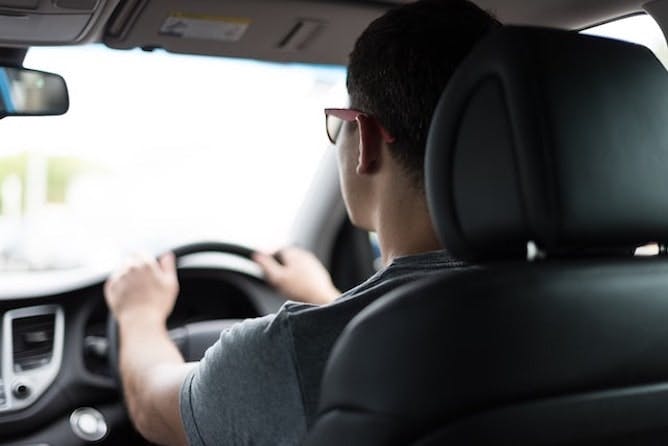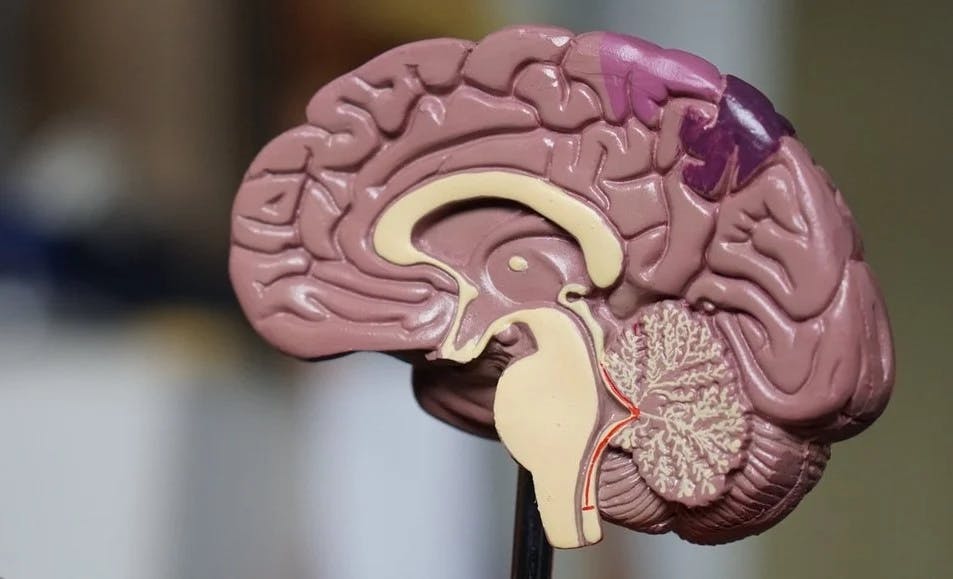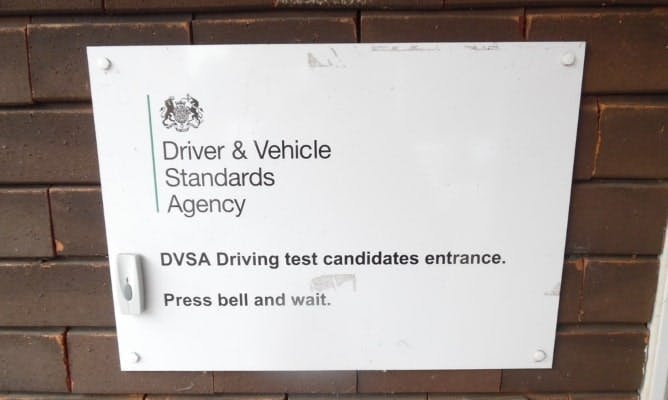
The journey to getting your driving licence is often punctuated by a few bumps in the road here and there. A bout of nerves, financial worries, a particular skill you just can’t seem to master—it happens to the best of us. On top of this, roughly 10% of people in the UK have to contend with a hidden medical condition that affects many of the abilities required to learn to drive: dyspraxia.
Driving with dyspraxia is a topic shrouded in a certain amount of mystery. Are you allowed to drive if you’re dyspraxic? Do you need to declare your condition to the DVSA? Are there things you can do to make the process easier for yourself? ...We could go on. Here at PassMeFast we decided to put together an article to shine a light on this often misunderstood condition. Useful for instructors and learners alike, read on to find out what’s in store for those who have dyspraxia and a desire to drive.
What is dyspraxia?

Dyspraxia is a medical condition also known as Developmental Coordination Disorder, or DCD. Though it’s understood that this is a condition one has from birth, many people are not diagnosed until adolescence or even adulthood. This is because a lot of the characteristics associated with dyspraxia are inaccurately blamed on clumsiness, or awkwardness linked to the body still being in its developmental stages. As with many conditions, dyspraxia presents itself differently in everyone and cases can range from mild to severe. Common symptoms include:
- Poor hand-eye coordination
- Lack of spatial awareness
- Short-term memory problems
- Inability to concentrate
- Issues judging speed and distance
It’s pretty clear how dyspraxia can therefore make learning to drive a very tricky process!
Can people with dyspraxia learn to drive?
We can sum up our approach to this in four words: be positive but realistic. In general, a dyspraxia diagnosis should not prevent you from learning to drive. Sure, you’ll have to accept that it will be harder for you to get to grips with the basics and the whole process could take longer than average, but it’s not a solid roadblock.
Plenty of people with dyspraxia earn their licence and go on to become excellent drivers. You just need to go into it with determination and an acceptance that some lessons may be difficult. It’s also understandably frustrating when you know that some of the problems you’ll face are out of your control. Try to remain positive and push on through.
The important thing to remember is that dyspraxia is certainly nothing to be embarrassed about. In fact, you’re in good company! Richard Branson, Albert Einstein and even Harry Potter himself, Daniel Radcliffe, have all been diagnosed as dyspraxic. Harry didn’t exactly have great luck with that flying car, but we’re going to blame that on Ron’s driving skills... Anyway! Let’s not run before we can walk—we’re just going to cover driving regular, wheels-firmly-attached-to-the-road cars. For now.
What does the DVSA say?

Not a lot, actually. Dyspraxia does not appear on the (very thorough) list of medical conditions that you’re required to declare when applying for a provisional licence. With cases ranging so widely in severity, whether you mention it is down to personal judgement. If you feel your dyspraxia will significantly affect your driving, you should be honest with yourself. Making people aware of your situation could be vital to protect the safety of both you and others on the road.
Inform the DVSA, or at least potential instructors, just to be on the safe side. If in doubt, check with you doctor before forking out any money for a course. People with mild to moderate dyspraxia are under no obligation to let anyone know. If it’s something you prefer to keep to yourself, that’s fine. We would recommend telling your instructor, though. It means they can adjust their teaching to suit your particular needs and it will make the whole process that little bit easier. If you have any additional conditions, like dyslexia, we'd also recommend letting your instructor know.
How might dyspraxia make driving a challenge?
Theory

The theory test is divided into two sections: multiple choice questions and a hazard perception exercise. While all learners may find the prospect of this driving exam a bit daunting at first, there are particular symptoms of dyspraxia that can throw in a couple of extra hurdles. This does not mean that people with dyspraxia won't be able to pass this test first time. It just means that if you do have the condition, it may take a bit of extra practice to reach the pass mark.
Thankfully, there are plenty of helpful theory test revision resources at your disposal. In terms of the multiple choice section, issues with short term memory can make it hard to learn the relevant answers and remember things like different traffic signs. Give it time. As with all tests, it just takes plenty of revision and a positive mindset. Purchase some study aids (you may be able to find some free options online) and practice, practice, practice! We also have our own handy guide to help you ace the test.
When it comes to the hazard perception test, an inability to concentrate could hamper your progress. Again, fit in some practice at home and it shouldn't be too much of a problem. PassMeFast has your back on this one too—check out our post on mastering hazard perception. Make the most of any extra support that is available to you.
The DVSA is sympathetic to a range of conditions and does cater to a number of special requirements. They have a dedicated support centre that you can contact to see if you are eligible for any of these arrangements. You may, for example, be allocated extra time to take the test. Organising this help in advance is highly recommended.
Practical
As far as the practical side of driving goes, coordination problems may take a while to iron out. Driving a car involves simultaneous control of the steering wheel, the pedals and the gear stick (more on this later). It's a lot to get used to but soon becomes second nature—we promise! Being able to judge the amount of space between you and the kerb, or other drivers, is an important factor when driving in traffic or performing manoeuvres.
If you struggle with spatial awareness, these are areas that will require a lot of focus. Some learners with dyspraxia get particularly worried about the independent driving section of the practical test. This is nerve-wracking for everyone, but if you're deemed to be test-ready by your instructor, it shouldn't be a problem. Keep in mind that this section is not a direct test of your navigation skills. No one is going to ask you to drive them to the Bermuda Triangle. You'll receive clear instructions from the examiner (to somewhere way less intriguing) and you can ask for them to be repeated at any time. Plus, you get to follow either road signs or a sat nav. Small mercies!
Drive with dyspraxia
Tips for learners

① Ditch the gears!
The biggest thing you can do to make your driving journey much easier is to opt for an automatic course. This cuts out a huge chunk of the learning process (those pesky gears) and means you don't have as much to focus on. Not having to worry about changing gear and controlling the clutch really takes the pressure off. If you're adamant about driving manual, that's fine too. Just be prepared to face some initial frustrations. Why not try both and see if it makes much of a difference?
② Start saving
A longer learning process, sadly, means more money leaving your account. Before starting your driving lessons, we recommend saving up quite a bit of money. This should reduce any stress that you may feel if you end up needing more lessons than you anticipated. It might also be an idea to go with an intensive driving course. If you suffer with short term memory problems, packing a lot of learning into a short space of time may allow you to retain the information in time for the test. Spacing the lessons out could result in you forgetting the initial things you've learnt by the time the next lesson rolls around...
③ Utilise support systems
Don't keep all of your worries to yourself. There are plenty of support systems out there for people with dyspraxia—so make use of them. Groups like the Dyspraxia Foundation have a wealth of helpful advice related to all aspects of life, including driving. Explore their website or, if you really feel stuck in a rut, call their helpline on 01462 454986. Fun fact: the Dyspraxia Foundation recommends playing video games to hone driving skills like reaction time and coordination. They sound like our kind of people!
④ Play Goldilocks
We're not telling you to run off into the woods and squat in the residence of a family of bears. Rather, embrace your picky side when it comes to finding an instructor. You want someone who's understanding of your situation, patient when you struggle to grasp things, and encouraging when you feel like giving up. It might sound like a lot to ask of one person, but for most driving instructors this is required of them from all students—with or without dyspraxia. We're sure you can find one that's juuust right!
Tips for instructors

① Do your research
It's no surprise that your students will feel more relaxed (and thus able to perform better) if you really understand what they're going through. Doing a bit of research into different conditions that affect driving ability will enable you to be a better teacher. Plus, once you've worked out an effective strategy for teaching learners with disorders like dyspraxia, it's a great skill to add to your CV. Everybody wins!
② Let that personality shine!
No one wants to be stuck in a car with a grumpy driving instructor. Patience isn't just a virtue, it's a vital quality in an ADI. Learners with any kind of special requirements will really benefit from a warm, friendly approach. Let them know that you understand their condition and work out the best way to go forward.
③ Learn some tricks
No need to become Derren Brown—we're thinking more different coloured stickers on each side of the steering wheel to help your pupil remember their left from right. You'd be amazed how a few little tweaks can really boost a student's progress. Research some online or have fun devising your own!
Take the first step

We hope this article has shown that, if you have been diagnosed with dyspraxia, it does not mean you won't be able to learn to drive. It's important to acknowledge your symptoms that could hinder the process—but don't assume dyspraxia will be your achilles heel. Sure, you might find it that bit harder to get to grips with a car than others, but you can be just as good a driver as anyone.
Judging by the number of minor accidents that happen every day, plenty of people have trouble gauging the distance between cars—and they don't have the excuse of a medical condition! It's not even out of the question for you to drive if your dyspraxia is severe. There are a number of car modifications that have been developed to help people with symptoms associated with the condition. Extra wing mirrors, specialised glasses and higher steering wheels are all available to make navigating the road that bit easier.
The best way to start out is by taking a course assessment. It will provide you with an introduction to the road and give you a chance to explain your condition to a driving professional. The instructor will also be able to recommend how many hours of teaching you require. This means you can start working on a budget plan (or raid the bank of mum and dad) and take the first step on that journey to the test.
When you're ready to explore the options available to you or book an assessment, why not contact PassMeFast? We have experience with a wide range of learners and our knowledgeable team will be happy to help—you'll even get the opportunity to design your own driving course! Good luck and happy driving!
Subscribe for driving advice, offers & more
We'd love to let you know about our courses, news and offers via email. You may unsubscribe at any time.
Star Genie Limited trading as PassMeFast. Company number 10093359
Copyright © 2024 owned by Star Genie Limited
PassMeFast, Blue Tower, MediaCityUK, Salford, M50 2ST
